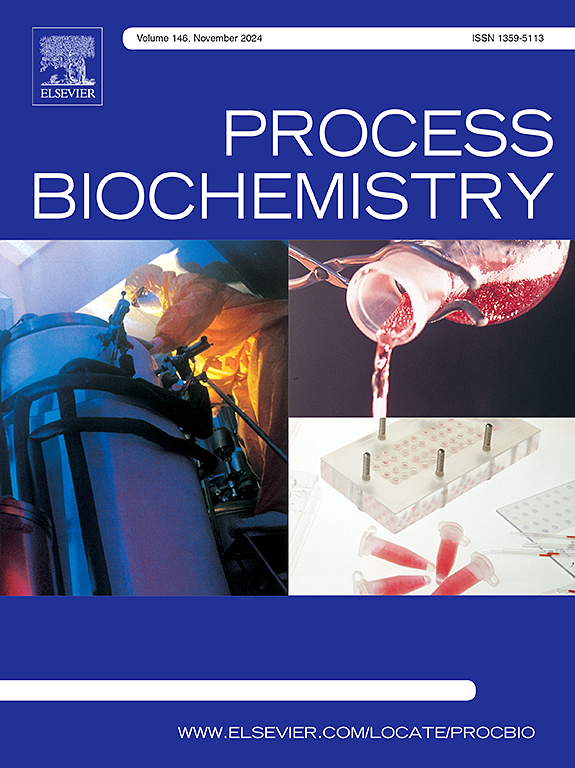Properties of Leuconostoc lactis isolated from traditional fermented rice beverages as a starter
IF 4
3区 生物学
Q2 BIOCHEMISTRY & MOLECULAR BIOLOGY
引用次数: 0
Abstract
The health benefits of traditional fermented rice beverages have attracted considerable attention. “Miki” from the Amami Ohshima island is made from spontaneously fermented rice saccharified with sweet potato β-amylase. Leuconostoc lactis is the dominant species isolated from Miki. In this study, we aimed to clarify the role of indigenous Ln. lactis in fermented rice beverages by determining the antimicrobial activity, exopolysaccharide (EPS) production capacity, and Miki fermentation properties. Among the isolates, Ln. lactis Miki-A3 showed superior anti-listerial activity in the agar overlay method and EPS production with antioxidant capacity (O2- radical scavenging and Fe-reducing power) compared with those of the type strain. The antibiotic resistance and related genes of Miki-A3 were similar to those of the type strain. The positions and orders of EPS-related genes differed between the two strains. In the Miki fermentation model, Miki-A3 fermented well at 30 ℃ and decreased Listeria monocytogenes (Lm) count from 5 log to below the detection limit (< 3.3 log CFU/mL) in 24 h. In the fermented Miki stored at 10 ℃, the Lm count immediately decreased. These results indicate that Miki-A3 is a promising starter for rice-fermented beverages in terms of health functionality and hygiene.
从传统发酵米酒中分离的乳酸菌的特性研究
传统发酵米酒对健康的益处引起了相当大的关注。来自奄美大岛的“Miki”是用甘薯β-淀粉酶糖化的自然发酵大米制成的。从三木岛分离得到的优势种为白僵菌。在本研究中,我们旨在阐明土著Ln的作用。通过测定发酵米饮料中乳酸菌的抗菌活性、胞外多糖(EPS)的生产能力和米基发酵特性。在分离株中,Ln。乳酸菌Miki-A3在琼脂覆盖法和EPS生产方面表现出较强的抗氧化能力(清除O2自由基和还原铁的能力)。Miki-A3的耐药性及相关基因与型菌株相似。两个菌株的eps相关基因的位置和顺序不同。在Miki发酵模型中,Miki- a3在30℃下发酵良好,单核增生李斯特菌(Lm)计数从5 log降至低于检测限(<;3.3 log CFU/mL) 24 h。发酵后的米酒在10℃下保存,Lm数量立即减少。综上所述,Miki-A3在保健功能和卫生方面是一种很有前景的大米发酵饮料的发酵剂。
本文章由计算机程序翻译,如有差异,请以英文原文为准。
求助全文
约1分钟内获得全文
求助全文
来源期刊

Process Biochemistry
生物-工程:化工
CiteScore
8.30
自引率
4.50%
发文量
374
审稿时长
53 days
期刊介绍:
Process Biochemistry is an application-orientated research journal devoted to reporting advances with originality and novelty, in the science and technology of the processes involving bioactive molecules and living organisms. These processes concern the production of useful metabolites or materials, or the removal of toxic compounds using tools and methods of current biology and engineering. Its main areas of interest include novel bioprocesses and enabling technologies (such as nanobiotechnology, tissue engineering, directed evolution, metabolic engineering, systems biology, and synthetic biology) applicable in food (nutraceutical), healthcare (medical, pharmaceutical, cosmetic), energy (biofuels), environmental, and biorefinery industries and their underlying biological and engineering principles.
 求助内容:
求助内容: 应助结果提醒方式:
应助结果提醒方式:


